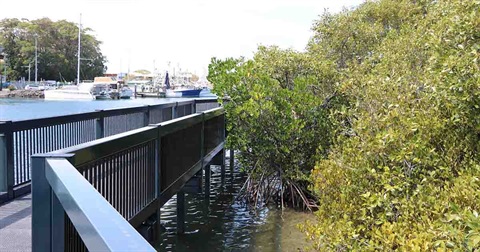Mangrove odours in the Tweed
24 August 2023

If you smell an odour like rotten-eggs in our waterways, it may be mangroves.
Mangroves grow along the shores of our beautiful estuaries and wetlands. They have an important role in maintaining a healthy eco-system.
Sometimes, mangrove fruit emit a rotten-egg like odour when they decompose, usually from July to November.
It’s often mistaken for sewage odour but it isn’t. The sulphide gas that’s produced is the same smell that can be given off by sewage gases. There are no safety concerns.
Mangroves help cycle nutrients and provide a habitat for spawning fish, prawns and crabs. They also help stabilise and maintain the banks of our waterways and reduce the chance of tidal erosion.
For these reasons, mangroves are protected under NSW Government laws, and Council and the community have an important role in protecting this important part of our internationally significant environment.
Why does the smell sometimes intensify?
Mangrove fruit tend to fall and decompose usually between July and November each year.
Some mangroves can drop up to one kilogram of fruits and leaves per square metre a year - a lot of sulphide gas can be produced.
The closer you live, work or play near mangroves, the stronger the smell will be.
High tides and high river levels after rain tend to move the decomposing fruit around and potentially closer to houses.
The wind speed and direction can also have an impact.